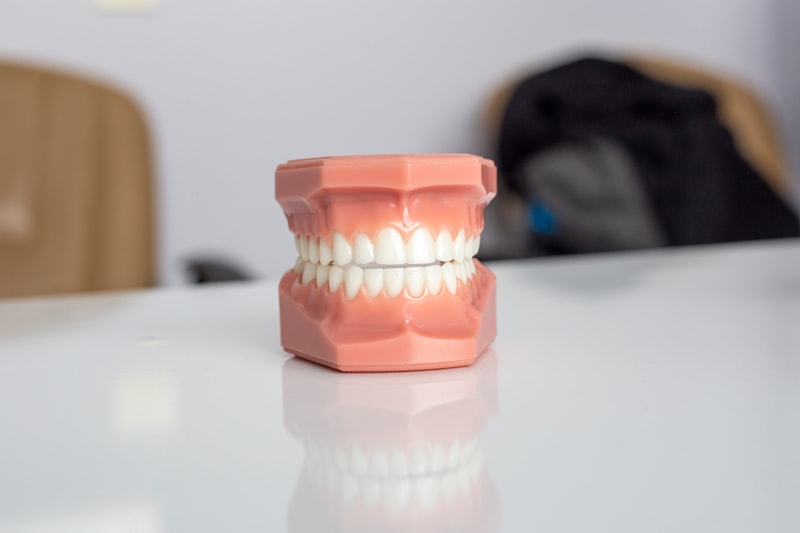Firstly, when scouting for toothpaste tailored for sensitive teeth, always check the ingredient list. Look out for potassium nitrate or strontium chloride, as these are known to help alleviate sensitivity by calming the nerves in your teeth. These components act as guardians, shielding your teeth from the discomfort caused by extreme temperatures.
Moreover, fluoride is another essential element to look for in sensitive toothpaste. It’s the defender of tooth enamel, fortifying it against decay and damage. Think of it as a sturdy shield, safeguarding your teeth from external assaults throughout the day.
Consider the texture of the toothpaste as well. Opt for a gentle, smooth formula that won’t further irritate sensitive teeth. You want a paste that feels like a soothing balm rather than a gritty sandpaper, tenderly caring for your teeth with every brushstroke.
Next, ponder the flavor. While this may seem less critical, selecting a toothpaste with a mild flavor can enhance your brushing experience. It ensures that your dental routine remains refreshing and enjoyable without overwhelming your taste buds.
Lastly, consult with your dentist. They can offer valuable insights tailored to your specific dental needs. Their professional advice is akin to having a personal guide, steering you towards the ultimate toothpaste choice for your sensitive teeth.
Sensitive Teeth SOS: Finding Your Perfect Toothpaste Match
Imagine your toothpaste as a superhero cape, swooping in to save the day with its magical ingredients. Brands like Sensodyne and Colgate Sensitive specialize in formulas designed to soothe sensitive teeth. These toothpastes often contain potassium nitrate or strontium chloride, which calm the nerves inside your teeth, reducing sensitivity over time.
For those chasing the elusive white smile, whitening toothpastes could be the perfect sidekick. Packed with abrasives and gentle polishing agents, they help scrub away surface stains, revealing a brighter smile. Keep in mind, though, that aggressive use might wear down enamel, so moderation is key.
Fresh breath enthusiasts, fear not – there’s a toothpaste for you, too. Whether minty fresh or bursting with flavors like cinnamon or citrus, these toothpastes tackle bad breath while keeping your mouth feeling clean and invigorated.
If you’re all about natural remedies, herbal toothpastes harness the power of nature. Ingredients like tea tree oil, neem, or aloe vera promise a refreshing clean without artificial additives.
Navigating the toothpaste aisle can be overwhelming, but armed with knowledge about your specific dental needs, you’re better equipped to make an informed choice. Remember, the perfect toothpaste is out there waiting to rescue your smile from sensitivity woes or to unleash its pearly potential. Ready to find your toothpaste match?
Ultimate Guide: Selecting Toothpaste for Sensitive Smiles
Sensitive teeth often react to hot, cold, sweet, or acidic foods and beverages. This discomfort stems from exposed dentin, which contains microscopic tubules that lead to the tooth’s nerve center. The right toothpaste can help alleviate this sensitivity while providing essential oral health benefits.
-
Potassium Nitrate: Known for its desensitizing properties, potassium nitrate helps calm the nerves in the teeth and reduce sensitivity over time.
-
Fluoride: Essential for cavity protection, fluoride strengthens tooth enamel and helps prevent decay, which is crucial for maintaining overall oral health.
-
Gentle Abrasives: Mild abrasives effectively clean teeth without further irritating sensitive areas, ensuring a thorough yet gentle brushing experience.
Opt for toothpaste that is free from harsh ingredients such as sulfates (SLS), which can potentially aggravate sensitivity. Look for labels that indicate the toothpaste is specifically formulated for sensitive teeth.
Toothpaste for sensitive smiles often comes in gel or paste forms. The texture preference is personal; some may find gels gentler, while others prefer the familiarity of paste. Experimenting with both can help determine which texture feels more comfortable and effective.
Individual dental needs vary, so consulting with your dentist is essential. They can recommend specific brands or formulations tailored to your sensitivity level and overall oral health.
Selecting toothpaste for sensitive smiles involves understanding ingredients, avoiding irritants, and finding a texture that suits your preferences. By prioritizing gentleness and effectiveness, you can maintain a healthy smile without discomfort. Ready to make your choice? Keep these tips in mind to find the ultimate toothpaste for your sensitive dental needs.
Top Tips for Choosing Toothpaste that Soothes Sensitive Teeth
-
Desensitizing Formula: Look for toothpaste specifically formulated for sensitive teeth. These contain ingredients like potassium nitrate or strontium chloride that help to block nerve signals that cause sensitivity.
-
Fluoride Content: Ensure the toothpaste has fluoride, as it helps in strengthening tooth enamel and preventing decay. Fluoride also contributes to reducing sensitivity by protecting exposed dentin.
-
Gentle Abrasives: Opt for toothpaste with mild abrasives that effectively clean teeth without causing further enamel wear. This helps to maintain dental hygiene while minimizing discomfort.
-
Avoid Harsh Ingredients: Check for toothpaste that is free from harsh ingredients such as sodium lauryl sulfate (SLS), which can irritate sensitive teeth and gums.
-
Clinically Proven: Choose toothpaste that is clinically proven to relieve sensitivity. Look for endorsements from dental professionals or products with clinical studies supporting their claims.
-
Flavor and Texture: Consider personal preferences such as flavor and texture. Toothpaste comes in various flavors and textures, ensuring a pleasant brushing experience that encourages regular use.
-
Consult Your Dentist: If unsure, consult your dentist for recommendations tailored to your specific dental needs. They can advise on the best toothpaste based on the severity of your sensitivity and overall oral health.
-
Regular Use: Consistency is key. Use the sensitive toothpaste regularly as part of your daily oral care routine to experience long-term relief from sensitivity.
Choosing the right toothpaste for sensitive teeth involves considering ingredients, clinical efficacy, and personal preferences. By selecting a toothpaste that addresses sensitivity while promoting oral health, you can enjoy a comfortable brushing experience and maintain a healthy smile.
Crucial Factors in Picking the Best Toothpaste for Sensitive Teeth
One of the key ingredients to look for in toothpaste for sensitive teeth is potassium nitrate or strontium chloride. These ingredients work by blocking the microscopic tubules in the dentin (the layer beneath the enamel) that lead to the tooth’s nerves. By blocking these tubules, sensitivity to stimuli can be reduced, providing relief over time with regular use.
Fluoride is another important component in toothpaste, regardless of sensitivity. It helps strengthen tooth enamel and can prevent cavities, which is crucial for maintaining overall oral health. When selecting a toothpaste, ensure it contains fluoride at a concentration recommended by dental professionals.
Abrasive agents in toothpaste should be gentle enough to avoid further enamel erosion while effectively cleaning teeth. Look for toothpastes specifically formulated for sensitive teeth that are labeled as low-abrasive.
Some toothpastes also incorporate desensitizing agents that provide immediate relief from sensitivity. These agents work by numbing the nerve endings in the teeth temporarily, reducing discomfort especially when applied directly to sensitive areas.

Consider your personal preferences as well. Some toothpastes are flavored or designed for specific oral care needs beyond sensitivity. Whether you prefer a minty fresh taste or a fluoride-free option, there are choices available to suit various preferences and concerns.

Finding the best toothpaste for sensitive teeth involves selecting one with desensitizing ingredients like potassium nitrate, fluoride for enamel strengthening, and low-abrasive properties. With regular use, these toothpastes can help alleviate sensitivity while promoting overall oral health. Choose a toothpaste that suits your preferences and consult with your dentist for personalized recommendations based on your specific dental needs.
Sensitive Teeth Solutions: Your Essential Toothpaste Buying Guide
Firstly, look for toothpaste specifically formulated for sensitive teeth. These toothpastes typically contain potassium nitrate or strontium chloride, which help to desensitize nerve endings in your teeth, reducing sensitivity over time. Brands like Sensodyne or Colgate Sensitive are renowned for their effectiveness in this regard.
Secondly, consider fluoride content. Fluoride is crucial for strengthening enamel and preventing tooth decay, but some sensitive toothpastes may have lower fluoride levels to minimize potential irritation. Check the fluoride concentration to ensure it meets your dental needs.
Texture matters too. Opt for toothpastes with a mild abrasive action to gently clean teeth without exacerbating sensitivity. Avoid whitening toothpastes, which can be harsher and might increase sensitivity in some individuals.
Furthermore, think about additional ingredients that cater to your oral health concerns. If you have gum issues alongside sensitive teeth, look for toothpastes that promote gum health, such as those containing antibacterial agents like zinc or essential oils.
Lastly, consistency is key. For optimal results, use your sensitive toothpaste consistently, brushing at least twice daily. Over time, you should notice a reduction in sensitivity, allowing you to enjoy hot and cold treats without the discomfort.
Choosing the right toothpaste can make a significant impact on your daily comfort. By selecting a toothpaste tailored to sensitive teeth and maintaining a diligent oral care routine, you can regain control over your dental health and smile confidently once again.
Expert Advice: Choosing Toothpaste that’s Gentle on Sensitive Teeth
Firstly, sensitivity in teeth often arises due to exposed dentin, which is the layer beneath the enamel that contains tiny nerve endings. When dentin is exposed, hot or cold foods and drinks, as well as sweet or sour items, can trigger discomfort. The ideal toothpaste for sensitive teeth addresses this by containing ingredients that help block the pathways to these nerves, thereby reducing sensitivity over time.
Look for toothpastes that are specifically formulated for sensitive teeth. These often contain potassium nitrate or strontium chloride, which are known for their desensitizing properties. These ingredients work by calming the nerves inside the tooth and reducing their responsiveness to external stimuli, effectively providing relief from sensitivity.
Moreover, opting for a toothpaste with a lower abrasiveness is crucial for maintaining the health of both your sensitive teeth and gums. Abrasive toothpastes can wear down enamel and expose dentin further, exacerbating sensitivity issues. Check the Relative Dentin Abrasivity (RDA) value of the toothpaste, aiming for one that is gentle yet effective in cleaning your teeth.
When shopping for sensitive toothpaste, consider additional features that align with your oral care needs. Some toothpastes offer fluoride protection, which is essential for preventing cavities and strengthening enamel. Others may focus on natural ingredients like aloe vera or chamomile, which can soothe gums and provide a refreshing sensation without irritating sensitive areas.
Ultimately, the best toothpaste for sensitive teeth is one that suits your specific dental needs and preferences. By choosing a toothpaste that addresses sensitivity while promoting overall oral health, you can ensure your smile stays bright and pain-free. So, next time you’re browsing the dental care aisle, keep these tips in mind to find the perfect match for your sensitive teeth.
Discover Your Ideal Toothpaste: Tips for Sensitive Tooth Care
First off, what causes tooth sensitivity? It’s often due to exposed dentin, which is the layer beneath the enamel that contains tiny nerve endings. When dentin is exposed, hot or cold foods and drinks can trigger discomfort or pain. This is where the right toothpaste can make a big difference.
One of the key ingredients to look for in toothpaste for sensitive teeth is potassium nitrate. This magical compound helps to calm those sensitive nerves in your teeth, reducing the pain associated with hot and cold stimuli. It works by blocking the microscopic tubules that lead to the nerves in the dentin, essentially desensitizing your teeth over time.
Another important ingredient is fluoride. While fluoride is crucial for cavity prevention, it also helps to strengthen tooth enamel. Strong enamel acts as a barrier to protect the sensitive nerves in your teeth. Look for toothpastes that contain fluoride to get the dual benefit of sensitivity relief and cavity protection.
When choosing a toothpaste, consider the texture and flavor as well. You want a toothpaste that you’ll enjoy using twice a day. Whether you prefer a refreshing minty flavor or something more subtle, there are options out there to suit every palate.
And don’t forget about brushing technique. Use a soft-bristled toothbrush and gentle, circular motions to clean your teeth and gums effectively without causing further irritation.
Frequently Asked Questions
How do I know if a toothpaste is suitable for sensitive teeth?
Learn how to identify toothpaste suitable for sensitive teeth with our concise guide. Discover key ingredients like potassium nitrate or strontium chloride, designed to reduce sensitivity. Look for ADA Seal of Acceptance for guaranteed effectiveness.
How often should I use toothpaste for sensitive teeth to see results?
Discover how frequently you should apply toothpaste for sensitive teeth to experience noticeable improvements.
What ingredients should I look for in toothpaste for sensitive teeth?
Discover which ingredients are crucial in toothpaste for sensitive teeth to ensure effective relief and protection. Look for formulations containing potassium nitrate or strontium chloride to desensitize nerves, and fluoride to strengthen enamel. Avoid harsh abrasives like sodium lauryl sulfate that can exacerbate sensitivity.
Are there any specific brands recommended for tooth sensitivity?
Discover recommended toothpaste brands designed for sensitive teeth to alleviate discomfort. These brands are formulated to reduce sensitivity while providing effective oral care.
Can toothpaste for sensitive teeth help with other dental issues?
Toothpaste for sensitive teeth is specifically formulated to alleviate discomfort caused by sensitivity to hot, cold, or sweet foods. While it may provide relief for sensitive teeth, it is not designed to address other dental issues such as cavities, gum disease, or enamel erosion. For these concerns, it’s essential to consult with a dentist who can recommend appropriate treatments tailored to specific dental conditions.


